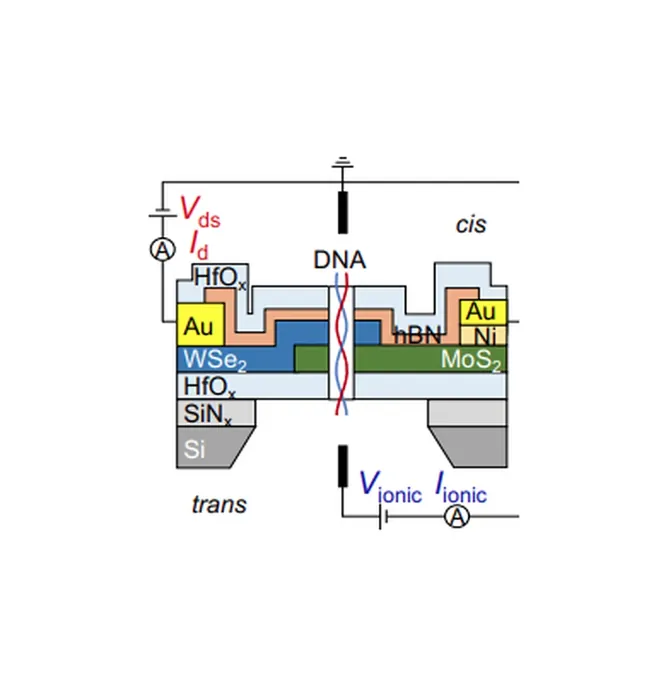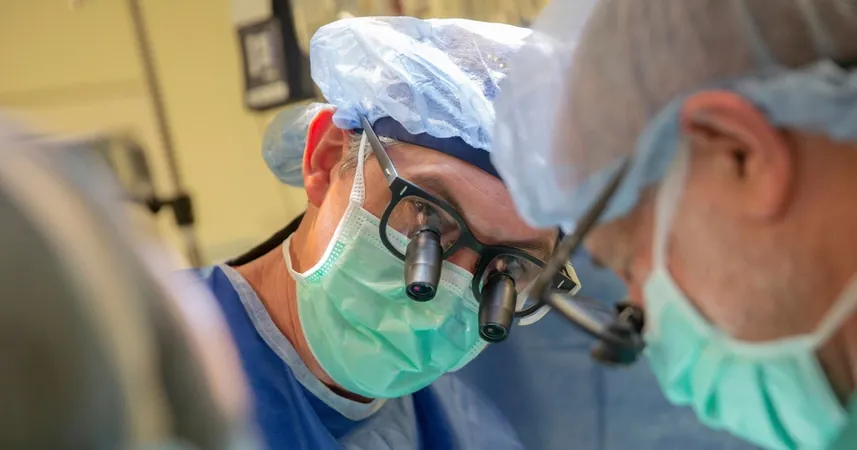
Breakthrough Nanopore Sensor Set to Revolutionize Fast, Affordable DNA Sequencing
2025-06-30
Author: Rajesh
A Game-Changer in Biomolecule Detection
Researchers at the Grainger College of Engineering, University of Illinois Urbana-Champaign, have unveiled a cutting-edge nanopore sensor designed for the rapid detection of single biomolecules. Their groundbreaking findings recently featured in the esteemed journal PNAS promise to reshape the landscape of molecular analysis.
How Nanopore Sensors Work
Nanopore sensors operate by detecting and analyzing individual molecules as they traverse tiny openings within the device, measuring ionic changes in real-time. While biological nanopores are currently on the market, the study's lead author Sihan Chen points out that solid-state nanopores boast significant advantages, particularly for large-scale, cost-effective sequencing.
Innovative Design Solves Key Challenges
Creating these nanopore sensors poses a unique challenge: they must be sufficiently small to maintain precise base-by-base resolution during molecular translocation. The collaborative effort of nanopore specialist Rashid Bashir and 2D materials innovator Arend van der Zande led to the design of an advanced 2D heterostructure incorporated into the nanopore membrane. This novel out-of-plane diode enables the simultaneous measurement of electrical current fluctuations during DNA movement, while also controlling the translocation speed with external biases.
Unlocking the Future of Precision Medicine
The potential applications of this technology are profound, particularly in the realm of precision medicine—a tailored approach to healthcare based on an individual's genetic, environmental, and lifestyle factors. Rashid Bashir envisions a future where arrays of millions of these innovative diodes, complete with nanopores, could drastically reduce DNA sequencing times from two weeks to a mere hour, heralding a new era in personalized treatment plans.
Future Enhancements on the Horizon
As the research team looks ahead, they plan to refine their sensor design, particularly addressing the limitations posed by their single p-n junction. Future explorations may involve a three-layer structure that could enable opposing electric fields to stretch DNA, offering even greater control over molecular translocation.
The Expansive Market of Precision Medicine
The global precision medicine market is projected to skyrocket from $79.9 billion in 2023 to an astounding $157.1 billion by 2032, bolstered by technological innovations like the new nanopore sensor and an increase in cancer diagnoses. Significant investments in human genome research, exemplified by the NIH's $5.2 billion funding in 2024, are vital in fueling this growth.
Notably, personalized medicines accounted for a staggering 25% of new drugs approved by the FDA in 2019, a substantial increase from just 5% in 2005, reflecting a rapid expansion in the availability and diversity of personalized treatment options as the sector continues to evolve.

 Brasil (PT)
Brasil (PT)
 Canada (EN)
Canada (EN)
 Chile (ES)
Chile (ES)
 Česko (CS)
Česko (CS)
 대한민국 (KO)
대한민국 (KO)
 España (ES)
España (ES)
 France (FR)
France (FR)
 Hong Kong (EN)
Hong Kong (EN)
 Italia (IT)
Italia (IT)
 日本 (JA)
日本 (JA)
 Magyarország (HU)
Magyarország (HU)
 Norge (NO)
Norge (NO)
 Polska (PL)
Polska (PL)
 Schweiz (DE)
Schweiz (DE)
 Singapore (EN)
Singapore (EN)
 Sverige (SV)
Sverige (SV)
 Suomi (FI)
Suomi (FI)
 Türkiye (TR)
Türkiye (TR)
 الإمارات العربية المتحدة (AR)
الإمارات العربية المتحدة (AR)